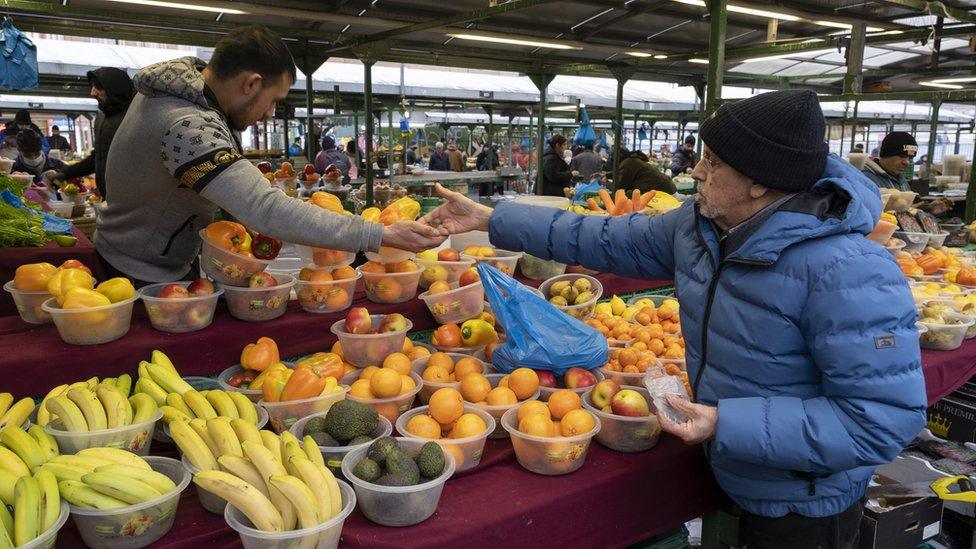Spring Statement: Rishi Sunak accused of not doing enough for poorest households
- Published
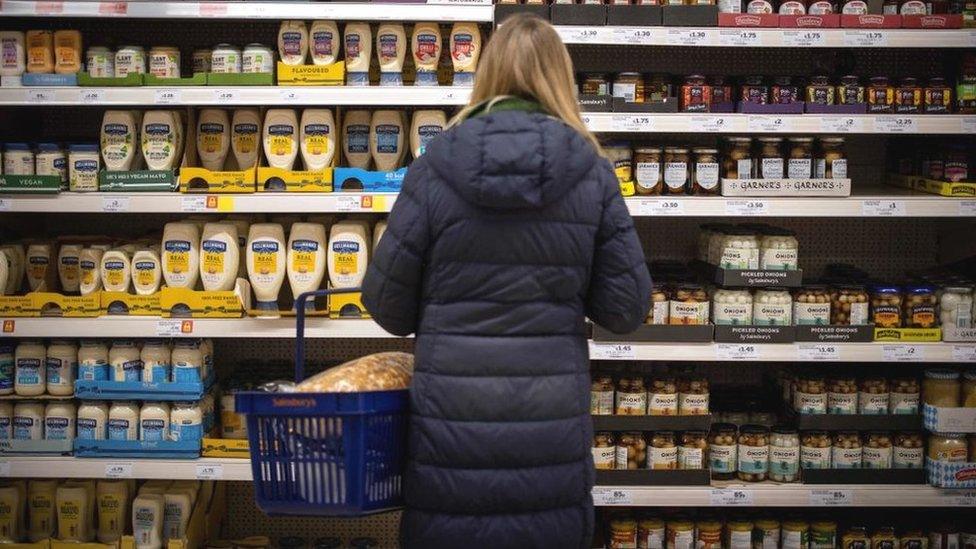
Rishi Sunak has been accused of not doing enough to help the poorest as the cost of food and energy increases at its fastest rate for 30 years.
The Resolution Foundation and Institute for Fiscal Studies think tanks said he could have done more to protect those hit hardest by rising costs.
Planned increases in benefits will be much smaller than the rise in the cost of living this year.
Mr Sunak said tax cuts this year would help those on low wages the most.
He said his plans to raise the point at which workers start paying National Insurance would particularly help people on low and middle incomes.
And he said it was impossible for him to "fully compensate" people for spiralling energy costs, a challenge the UK was "not alone" in facing.
Prime Minister Boris Johnson also hinted more help for people struggling was on its way in the coming months.
"The cost of living is the single biggest thing we're having to fix, and we will fix it," the prime minister told LBC Radio, adding: "As we go forward, we need to do more".
Watch: Sunak defends measures set out in Spring Statement
Mr Sunak sought to address the rising cost of living in his Spring Statement on Wednesday, cutting 5p from fuel duty and taking some of the sting out of April's National Insurance (NI) rise by raising the point at which workers have to start paying it from £9,600 to £12,570 from July.
But he has faced calls from opposition MPs to do more to help people now, as inflation is predicted to hit more than 8% by end of the year and UK living standards are predicted by the Office for Budget Responsibility to fall faster than at any time since the 1950s.
His tweaks to National Insurance fell short of the demands from Labour and some Tory MPs, who had called on him to scrap April's rise completely.
One of the Conservatives who had called on him to scrap the increase, Richard Drax, said the chancellor's approach was "tinkering around the edge" and he had not gone far enough to ease the tax burden.
Another Conservative backbencher, Peter Aldous, said the chancellor's tweaks would "offset" the effect of the NI rise - but added the below-inflation increase to benefits meant claimants would still see a "significant fall" in spending power.


Privately, there is angst among some Conservatives, including ministers, that the changes announced by Rishi Sunak amounted to "fiddling," as one put it.
Another was scathing about what they perceived to be the political calculation made by a chancellor desperate to be seen as a tax-cutter at a time when taxing and government spending is higher than it's been for decades.
One described Mr Sunak's promise to cut income tax - but possibly not for two years - as "ridiculous," seeing it as a gesture to burnish his credentials and image as a future prime minister rather than sensible policy making.
A photo opportunity where Mr Sunak filled up someone else's car with petrol is also being privately mocked among some of his colleagues.
But there's a deeper concern from many here: that at what one minister described as a "genuinely difficult time for people," the capacity for any government to make a substantial difference is limited.
And plenty fret this government has not yet grasped the true scale of the problems coming down the track.

The Institute for Fiscal Studies' director Paul Johnson said that overall the measures set out by Mr Sunak - including council tax and energy bill rebates announced last year - amounted to a "relatively modest giveaway" of around £5bn.
He acknowledged that the chancellor had been "caught in a bind", dealing with the effects of the pandemic, Brexit and the war in Ukraine.
But he said that the new policies would "not be enough to protect poorer households from a significant hit to their living standards".
And, despite the chancellor's rhetoric about cutting taxes, they were set to rise their highest level as a share of national income since the 1940s, when Britain was emerging from World War Two.
Another think tank, the Centre for Policy Studies, criticised Mr Sunak's decision to go ahead with April's National Insurance rise, but said his tweaks to the starting point for paying the tax were a good way to "soften the blow".
"This has long been a good idea which help ensure that work pays, and leave money in the pockets of lower earners beyond the current crisis," it added, saying boosting growth in the long term was the only way out of the current economic issues.
Watch: How the Ford family is coping with the cost of living
New analysis from the Resolution Foundation, which focuses on people on low incomes, also suggests that 1.3 million more people would be pushed into "absolute poverty" from April - defined as having an income below £14,000 for a childless couple and £8,000 for a single person.
But the chancellor said this needed to been seen in the context of the "biggest economic shock in over 300 years" due to Covid.
Speaking to the BBC, he said borrowing had spiralled to its biggest level since World War Two as a result of spending to support the economy during pandemic.
"It's unsurprising that dealing with the aftermath of that is also pretty exceptional," he added.


Powder is being kept dry, while the energy cap suppresses further rises in bills.
The extent of any further support can be determined in the summer, when it will be clear if the new cap implies average bills of an incredible £200 per month or even a truly terrifying £300 per month.
That in turn depends on the war in Ukraine and supplies of energy from Russia.
Not even the Office for Budget Responsibility knows where this is going to land. But there is space for a support package of several billion, if required.
Mr Sunak also used Wednesday's statement to promise to cut the basic rate of income tax from 20p to 19p in the pound by the next general election in 2024, when he said the UK economy would be in better shape than it is now.

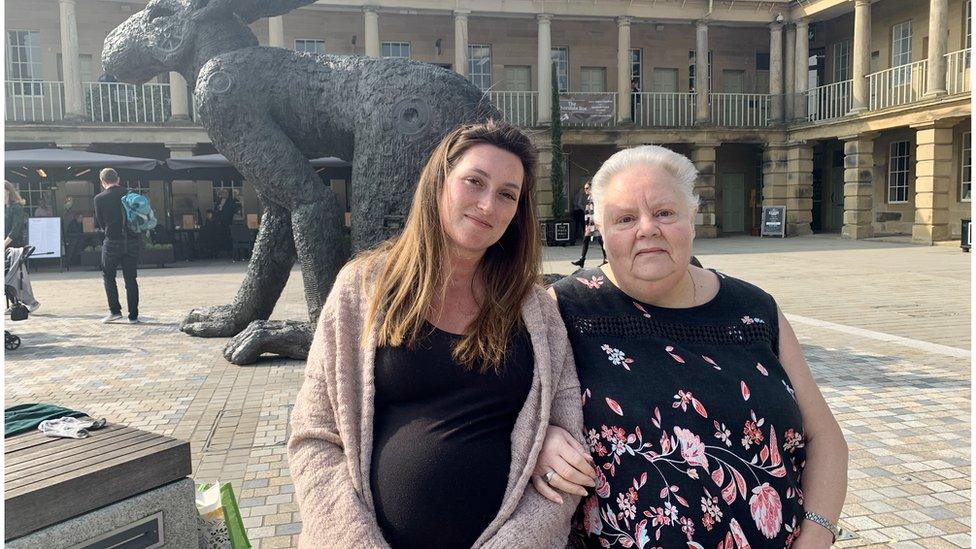
Stevie (left) says she is "just trying to get by"
Stevie Hall in Halifax says rising food, fuel and energy bills have nudged her into debt already.
She told the BBC she has been batch cooking to save money and is only driving when there is a real need.
"We're just trying to get by, I'm trying to stay upbeat about it," she said.
Louise in Leicester told BBC 5 Live that her electricity bill "has gone up £120 a month so that's money off something else".
"I'm having to buy bulk more to make stuff last. You dare not put your electric on… you can't put that on for 300-odd quid a month."
Labour's shadow chancellor Rachel Reeves said Mr Sunak had failed to understand the scale of the cost of living crisis.
"I think most people are looking at their pay packets now and looking at their taxes, and saying these promises in the future are not going to help me pay these bills this year," she said in an interview.
"I was incredibly surprised that the chancellor didn't do anything yesterday with rising gas and electricity bills, when the profits being made by North Sea oil and gas companies are at near-record highs."
Watch: Labour says Sunak is a tax raising chancellor, following the Spring Statement

How is the cost of living crisis affecting you? Share your experiences by emailing haveyoursay@bbc.co.uk, external.
Please include a contact number if you are willing to speak to a BBC journalist. You can also get in touch in the following ways:
WhatsApp: +44 7756 165803
Tweet: @BBC_HaveYourSay, external
Please read our terms & conditions and privacy policy
If you are reading this page and can't see the form you will need to visit the mobile version of the BBC website to submit your question or comment or you can email us at HaveYourSay@bbc.co.uk, external. Please include your name, age and location with any submission.
- Published23 March 2022
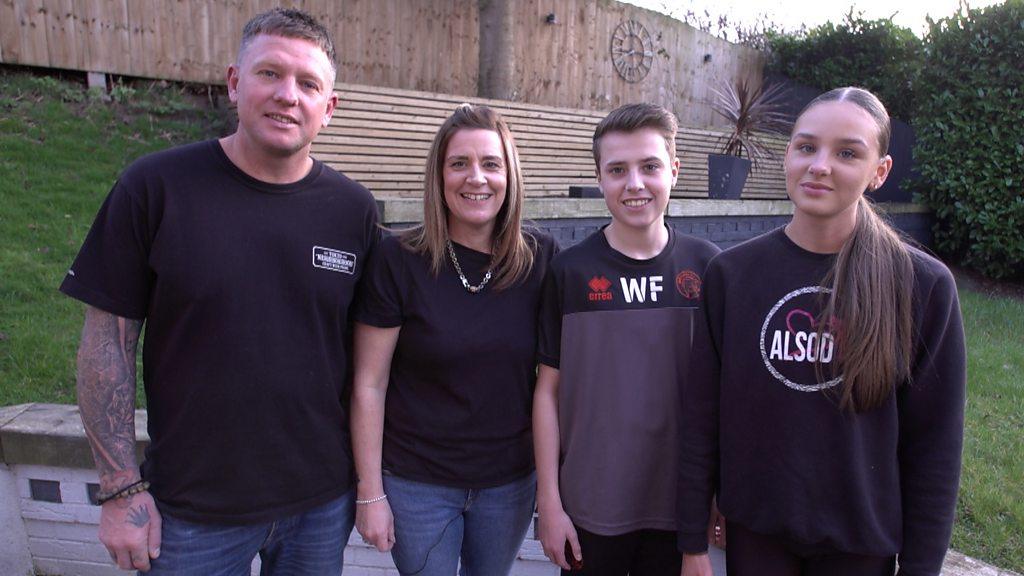
- Published23 March 2022
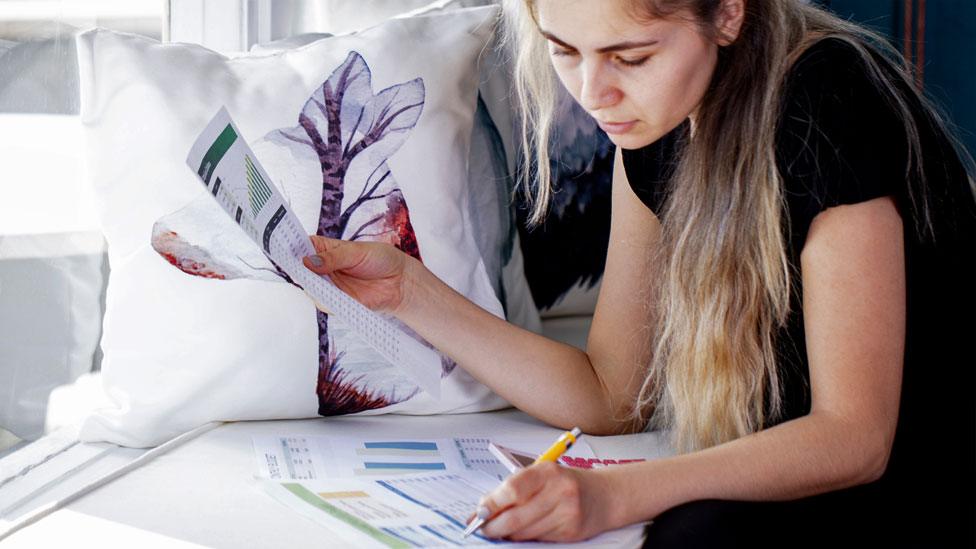
- Published23 March 2022
